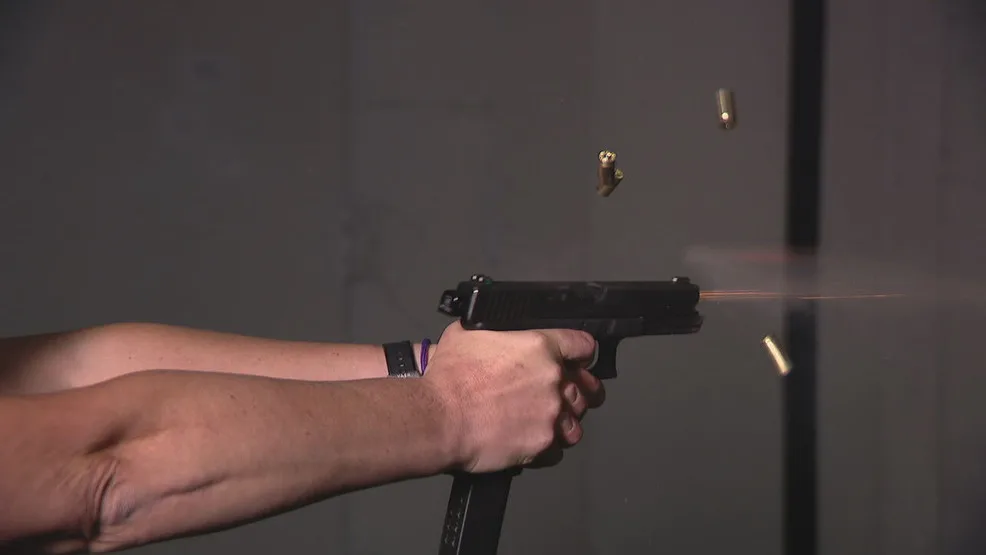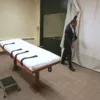
SEATTLE — Gun violence, shootings, and shots fired calls have soared in the city of Seattle over the last 12 months.
This week and on Monday, Seattle City Council’s budget committee is debating whether to approve funding in next year’s budget for controversial gunshot detection technology.
The mayor said the pilot project is an innovative tool to help combat gun violence.
Such systems rely on acoustic sensors to record the sound of gunfire and triangulate the origin. Last year, Shotspotter, one such provider, told KOMO News the sensors are set atop buildings or street lights.
RELATED: Seattle mayor hopes to use unspent police salaries to fund gunfire detection system
If approved, the Mayor’s office said locations will be prioritized based on crime data, and it’s likely those areas could initially include Third Avenue, Aurora Avenue North, and parts of Belltown.
An Oct. 6 briefing memo from the mayor to city council central staff locations will be prioritized based on the concentration of gun violence, human trafficking, and persistent felony crimes and rely on CCTV cameras with acoustic gunshot locator capabilities.
“We are tired of gunfire, and we are tired of crime,” said Victoria Beach, Chair of the African American Advisory Council to the Seattle Police Department (SPD).
The statistics are staggering. The same memo reports, “Reported gun violence incidents this year through October 5, 2023, have increased 70% since to the same period in 2020, from 334 to 567.”
The mayor’s office said there have been hundreds of shootings and thousands of rounds fired in the city of Seattle since this time last year. In that same period, SPD has recovered 1,150 firearms.
According to the SPD crime dashboard, since the end of September, there have been 553 shootings and shots fired this year, a pace that could surpass last year’s total of 576 shootings and shots fired.
RELATED: Community groups push for gunfire detection system in Seattle, but funding in jeopardy
Beach and members of the African American Advisory Council met with ShotSpotter to learn more last year. She insists she is so exasperated by the disproportionate amount of gun violence affecting African-American community members – that she’s ready to try something new in the city to help Seattle police.
Her members support trying out the technology, and she said the Mayor’s and Chief’s support of the technology shows they care about the community.
“It’s a pilot project. Why not try it out? If it saves one life, it is worth it,” Beach said.
But the ACLU and other groups have criticized such systems and organized a group of panelists to address what they describe as risks and flaws associated with the technology on Facebook Wednesday night.
KOMO News asked to sit down with one of the panelists or a member of the ACLU to get their input, but they were not able to provide anyone to interview.
In a news release and online publications, they outlined their concerns and believe the technology can be dangerous surveillance, lead to overly aggressive police responses, as well as false arrests, and do little to prevent gun violence.
“Even if it doesn’t prevent gun violence, it’s a tool that can stop retaliation, tell you what type of gun is being shot, how many guns, and where the gunfire is,” Beach said.
RELATED: Illegal ‘Glock switch’ blamed for increase of rounds being fired in western Washington shootings
Seattle’s mayor has made it clear that he wants the Seattle council’s support for the public safety measure, which in addition to a gunshot detection system, includes license plate readers and cameras totaling $1.8 million. The proposal also addresses privacy and in an email, Jamie Housen, the Mayor’s Office Spokesperson wrote the following:
The pilot’s first focus would be on a CCTV camera system that could be connected to integrate AGLS. Last year’s proposal was for an acoustic-only ALGS system with no video. In addition to documentation and deterrence effects, the system would provide the Seattle Police Department with additional context when crimes occur and gunshots are fired, which could inform response and evidence-gathering efforts. If data demonstrates positive outcomes from the pilot and we wanted to move the technology to other locations that would be preceded by community outreach.
“This is a trial, and we are not saying it’s going to be permanent. Let’s try it. Our young black men are dying, and I have sat with many parents. They have lost kids to gun violence, and I don’t say they cry, they weep,” said Beach.
The full council votes on Nov. 21 on the budget, a committee hearing is set for Monday, and a committee vote for Tuesday, Nov. 14.
Similar funding was stripped from the last budget cycle.


